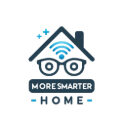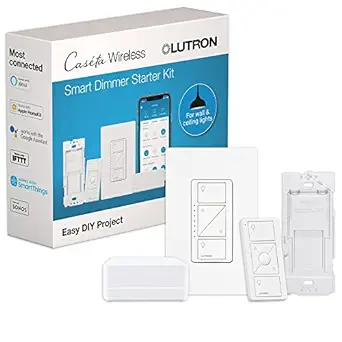Some of the products we mention and recommend may include affiliate links to allow us to offset some of the cost of running this site. For more info please read our privacy policy
How to Secure Your Smart Home Against Hackers
As technology continues to advance, more and more of our daily lives are being automated and controlled by smart home devices. From lighting and heating to security and entertainment, smart homes provide convenience and ease to homeowners. However, with this convenience, there may also come some risks, particularly in terms of security. Hackers have found ways to exploit vulnerabilities in smart home devices, and it is important for homeowners to take steps to secure their smart homes. In this article, we will discuss some tips for securing your smart home against hackers.
Keep Your Devices and Software Up-to-Date
One of the easiest ways for hackers to gain access to your smart home devices is through outdated software. This includes not only the operating systems of your devices but also the apps and programs used to control them. Manufacturers are constantly releasing updates to fix security flaws and improve the performance of their devices. It is important to regularly check for updates and install them as soon as they become available.
Use Strong Passwords
It may seem like a simple task, but many people often overlook the importance of using strong and unique passwords for their smart home devices and accounts. This includes not only your Wi-Fi network password but also the passwords for each device and app you use. Hackers can easily bypass weak passwords and gain access to your devices and personal information. Make sure to use a combination of letters, numbers, and special characters for your passwords, and avoid using the same password for multiple devices or accounts.
Separate Your Networks
It is recommended to have separate networks for your smart home devices and your personal devices, such as computers and smartphones. This way, if a hacker gains access to one network, they will not have access to all of your devices and personal information. You can set up a guest network for your smart home devices or use a network segmentation tool to separate your networks.
Enable Two-Factor Authentication
Two-factor authentication adds an extra layer of security to your accounts by requiring a second form of authentication, such as a code generated on your smartphone, in addition to your password. This makes it much more difficult for hackers to gain access to your accounts and devices.
Limit Access to Your Network
When setting up your smart home devices, make sure to limit access to your network. This means only allowing access to your Wi-Fi network for devices that are necessary and trusted. Some devices may require you to create a guest network or whitelist specific devices in order to connect to your network. This is an important step in preventing unauthorized access to your network and devices.
Use a Firewall
A firewall acts as a barrier between your network and the internet, monitoring and controlling incoming and outgoing traffic. It can prevent unauthorized access to your network and help detect and block any malicious activity. Many routers have built-in firewalls, but it is also recommended to have a separate firewall specifically for your smart home network.
Be Cautious of Third-Party Apps and Devices
When purchasing smart home devices, it is important to do your research and only use devices and apps from trusted manufacturers. Third-party devices and apps may not have the same level of security measures in place, making them more vulnerable to hackers. It is also important to regularly check for updates and security patches for third-party devices and apps.
Educate Yourself and Your Family
It is crucial to educate yourself and your family about the potential risks of smart home devices and how to prevent them. Make sure everyone in your household is aware of best practices for securing devices and accounts, such as using strong passwords and being cautious of suspicious emails or messages. It is also important to explain the consequences of a security breach and the steps they should take if they suspect a device has been hacked.
Conclusion and Call to Action
In conclusion, securing your smart home against hackers is an essential step in protecting your privacy and personal information. By regularly updating your devices and software, using strong passwords, separating your networks, and being cautious of third-party devices and apps, you can greatly reduce the risk of a security breach. It is also important to educate yourself and your family about best practices and the potential risks of smart home devices. For more tips and articles on smart home automation, be sure to check out our website, moresmarterhome.com. Stay safe and secure in your smart home!


